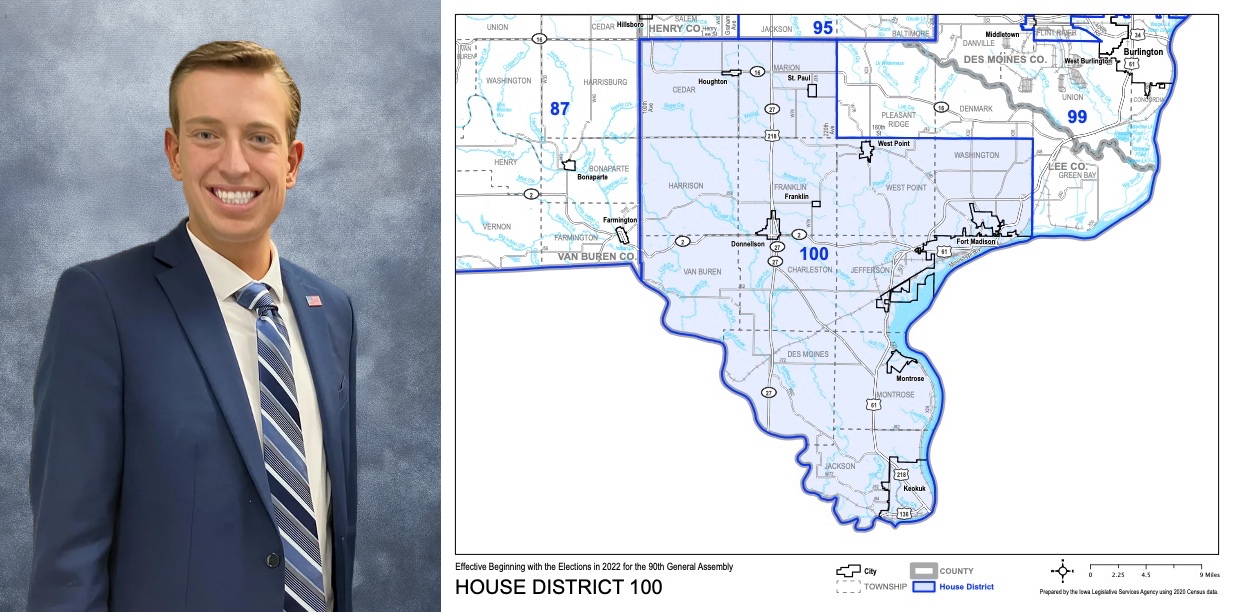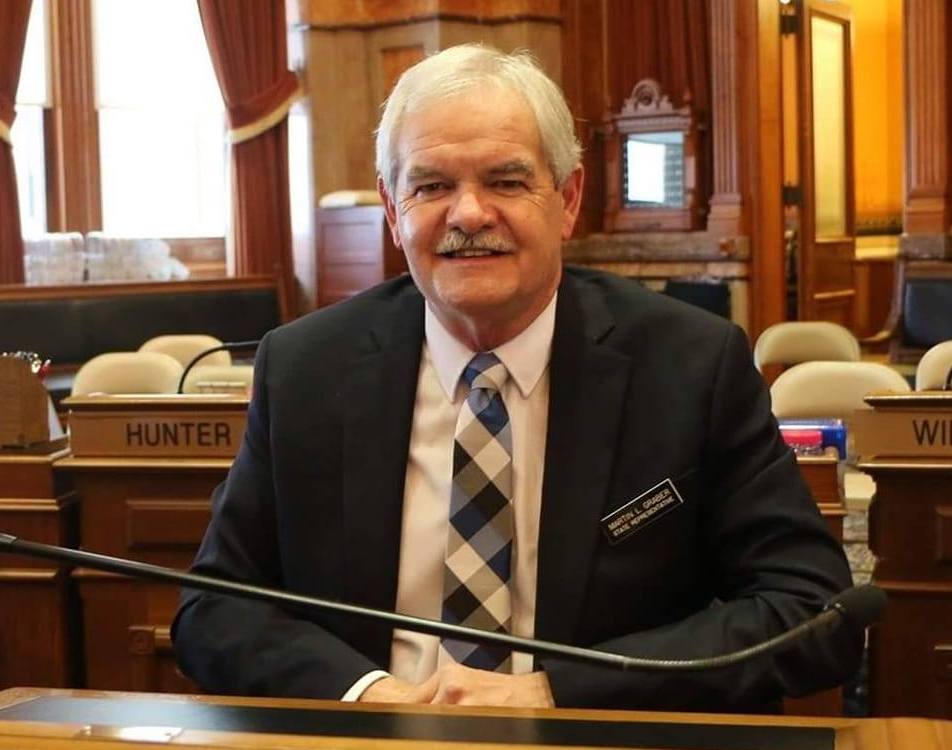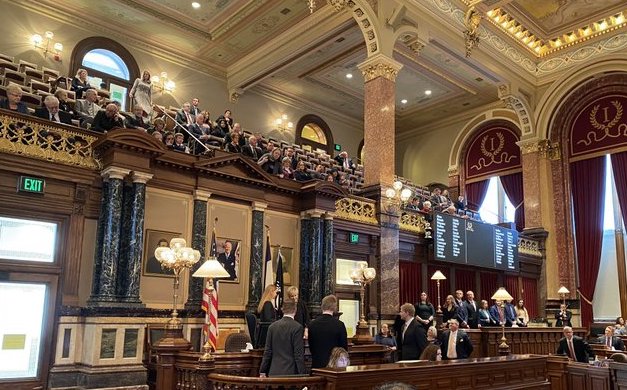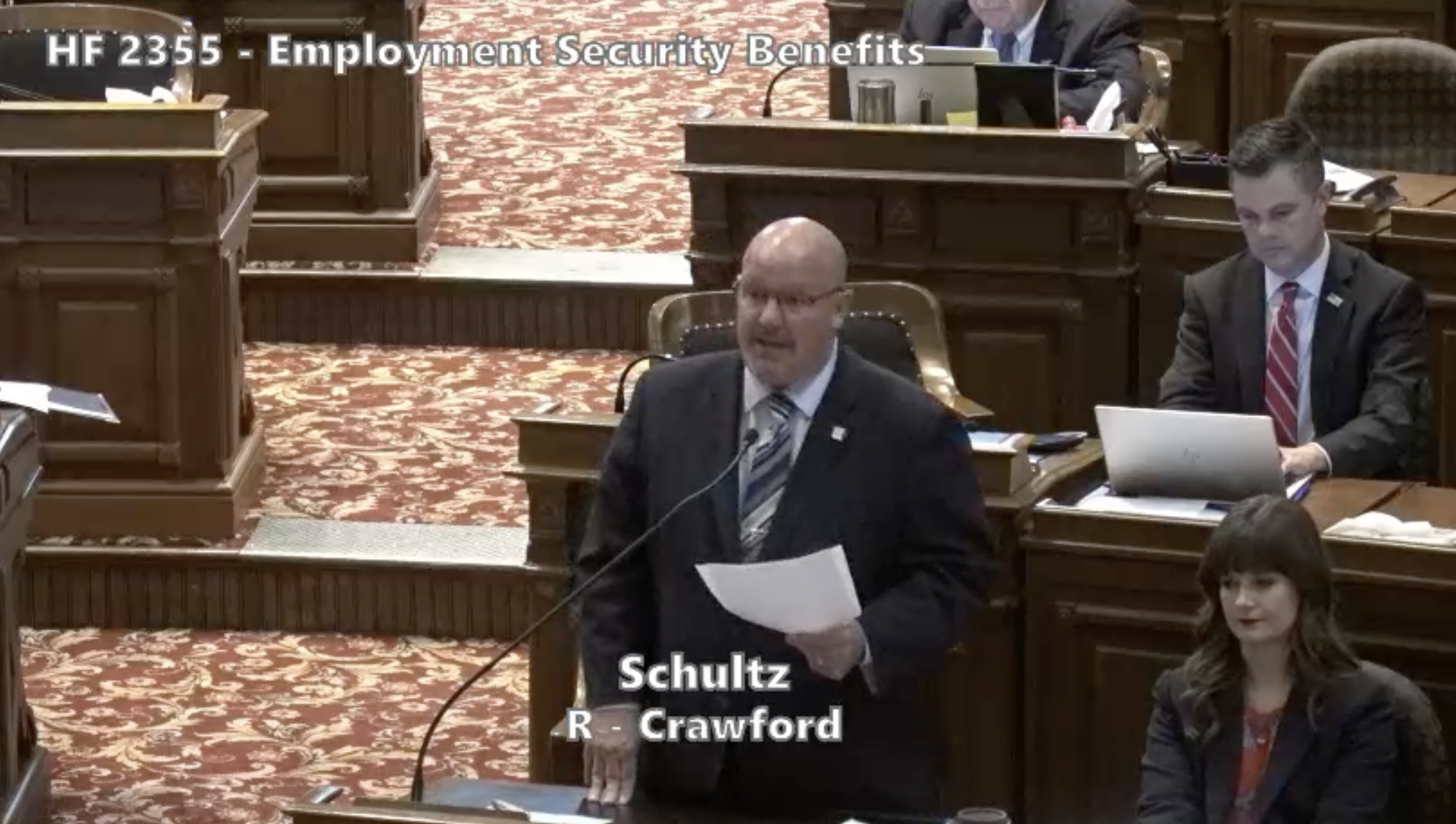Legislative clerk Blaine Watkins will be the Republican candidate for the March 11 special election in Iowa House district 100, covering most of Lee County. Three other Republicans also competed for the nomination at a February 13 special convention. Watkins easily won with more than 70 percent of the delegates’ weighted votes on the first ballot.
Chuck Vandenberg reported for the Pen City Current that Watkins “told the convention that he had three issues he wanted to tackle right away, if elected”: property taxes, school choice and parental rights, and economic growth and jobs.
According to his LinkedIn page, Watkins graduated from Grand View University in December 2024, having majored in political science with a minor in business. He has clerked in the Iowa Senate for the past five years—first for former State Senator Craig Williams in 2021 and 2022, then for State Senator Jeff Reichman (who represents this part of southeast Iowa) since the 2023 session.
Watkins continues a trend of Republican legislative candidates who previously worked as clerks for Iowa GOP lawmakers. The most recent example was David Blom, the successful 2024 GOP challenger in House district 52, covering the Marshalltown area. Candidates with clerking experience are already steeped in the culture of the Golden Dome and will likely be reliable votes for leadership.
Continue Reading...















